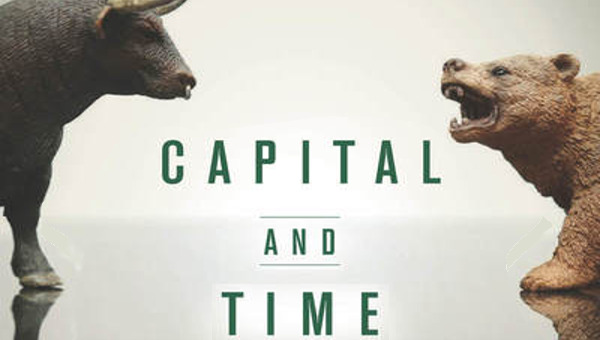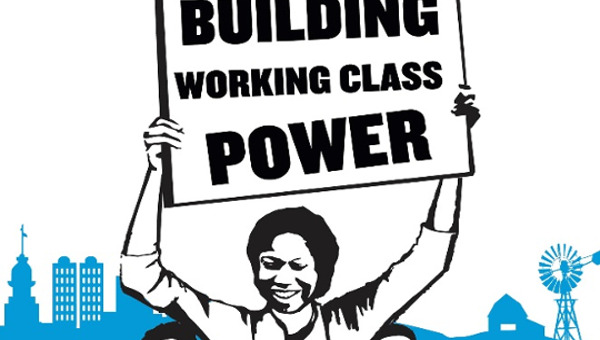Beyond Wage Cuts, Beyond the Bailout
The global crisis quickly engulfing us threatens to become the worst since the Great Depression, and this means that past ways of doing things need to be fundamentally rethought. But Gord Henderson’s focus on wage cuts for autoworkers (Windsor Star, November 20, 2008) is the absolutely wrong way to go – that much we already learned from the 1930s, when competitive cuts in workers’ wages only aggravated the depression. When Henderson responds to CAW President Ken Lewenza’s defence of workers’ wages with a glib “Tell that to all those low-wage Mexican autoworkers,” what exactly does this mean?
In the face of the general concern that consumers are retrenching (and business consequently holding back investments), how much sense does it make to advocate autoworkers setting a pattern for lower wages and less purchasing power? And what kind of notion of progress and vision for the future does the target of Mexican wage standards suggest?
The fact is that Canadian hourly compensation in the auto industry is now below the U.S., at about par with Japan and less than three quarters of hourly compensation in Germany (U.S. Bureau of Labour data for 2006, adjusted for current exchange rates). Because the industry is integrated into the American industry, Canada is affected by the higher costs in the U.S., particularly that of health care. But here, too, the answer is hardly to blame the workers, but rather to point to the social and economic stupidity of the U.S. for not having the kind of single-payer public health care system that is common in the rest of the developed world.
Union Shortfalls
Where the union can be blamed is not in what it has achieved for working people, but in its refusal to play a leading role in challenging the direction of the industry, especially in terms of its laggard move to fuel-efficient, non-polluting vehicles. Saving future jobs – and also addressing the thousands of lost jobs of former members whom the bailout won’t bring back – necessitates correcting that earlier shortcoming in two specific ways.
First, as absolutely essential as the bailout is, it won’t end the crisis in the auto industry even if the Detroit-based companies adjust their models. That’s because the industry has so much excess capacity and slow growth will characterize at least the next few years, if not beyond. This means that even as the union lobbies to achieve the bailout, it needs to raise its perspective beyond auto. It needs to start thinking about the application of existing facilities and skills to a larger set of products. Here, the environment re-enters, but rather than being a threat to jobs it holds out the potential of adding jobs. If the environment is going to be seriously addressed in this century, it will mean changing not just the kind of cars we drive and how they are powered, but everything about how we work, consume, travel, live. To that end, auto’s assembly, component and tool and die shops, along with its body of skilled and committed workers, are an asset that can be converted into producing wind turbines, solar panels, parts for mass transit vehicles, more energy-sensitive industrial machinery and more energy efficient home appliances.
Second, we need to move from thinking about saving the auto industry to saving communities. The auto industry is concentrated into particular communities that, like Windsor, were in crisis well before GM asked for a bailout. What’s at issue is not just hanging on to jobs in auto (which, as productivity grows, will continue to decrease over time even with a bailout) but also finding productive jobs for all those already unemployed or looking for their first job. To address this crisis in the community means not only introducing new car models and addressing the kind of conversions of Windsor’s vast productive potential raised above, but also fixing and expanding Windsor’s deteriorated infrastructure (like other municipalities, Windsor has a long list of such projects sitting on the shelf) and addressing the social needs that make cities into ‘communities’ (from resources for public facilities and sports, to converting vacant lots into green parks and gardens; from child-care to in-home assistance for the disabled and the aged).
‘Leave it to the Market’ or Democratic Planning?
It should be obvious that none of this can happen if we ‘leave it to the market,’ or even with some ad-hoc patchwork government intervention. It requires serious national and city-level planning and planning that develops the democratic structures to encourage and facilitate popular participation. This takes us far beyond the auto industry and many might say ‘sorry, I’m too busy surviving to think about that.’ But that response has a lot to do with why autoworkers are in their current awful predicament. If there’s anything the recent past teaches us is that if we don’t start acting on the future now – if we think it will fix itself – then ‘later’ becomes too late, or at least confronts us with even more difficult problems.
Survival tomorrow and in the future means daring to think and act ‘big’ today. What kind of country do we want? What kind of community do we want to live in? How do we get there? •





